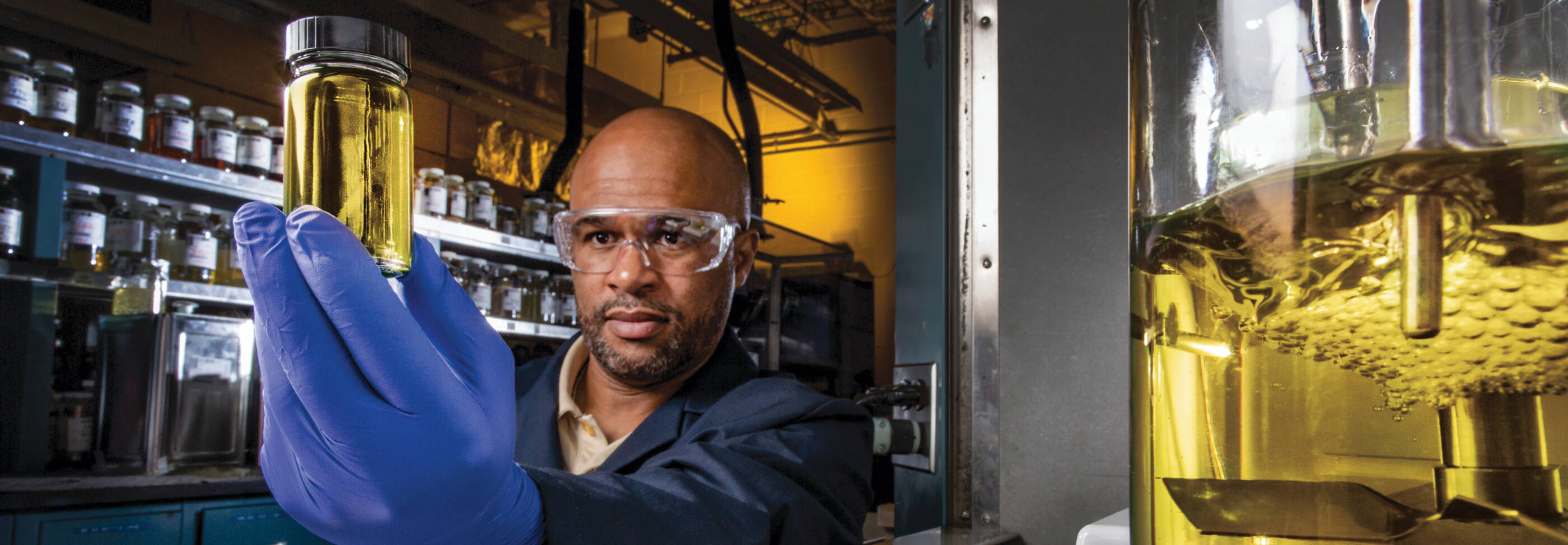selected item
University and national labs partnerships
Fueling future energy discoveries
ExxonMobil continually looks for ways in which science and technology can help drive innovation in the work we do. Every day, we engage with diverse academic institutions to research and develop new solutions to help us meet society’s dual challenge: meeting energy needs while also minimizing the environmental impacts of energy use, including the risks of climate change.
Our work focuses on the research of breakthrough lower-emissions technologies, including advances in materials science and carbon capture and storage. These collaborative relationships with many of the world’s most advanced research colleges and universities can fuel new discoveries and empower advanced energy research.
>80
universities around the world which ExxonMobil has partnered with, including MIT, University of Texas, Stanford, National University of Singapore, and Nanyang Technological University of Singapore.>20K
scientists and engineers employed by ExxonMobil, including more than 2,200 with Ph.Ds$100M
Developing breakthrough solutions
innovative partnerships
Reducing methane emissions
ExxonMobil is working to find new and better ways to monitor and reduce methane emissions through a new collaboration involving universities, environmental groups and other industry partners.
Called Project Astra, the effort is focused on developing an innovative sensor network to continuously monitor methane emissions across large areas to enable quick and efficient detection and repair of leaks.
The company is working with the University of Texas, Gas Technology Institute, Environmental Defense Fund and Pioneer Natural Resources.
Project Astra will create a network of sensors to feed data to a central system that can quickly alert the right people to fix a leak. This high-frequency monitoring system will enable operators to more efficiently direct resources to a specific location. If successful, the project could provide a more affordable, efficient solution to reduce methane emissions.
ExxonMobil is also testing a host of other solutions, including satellites, aircraft and unmanned drones, to detect these emissions.
